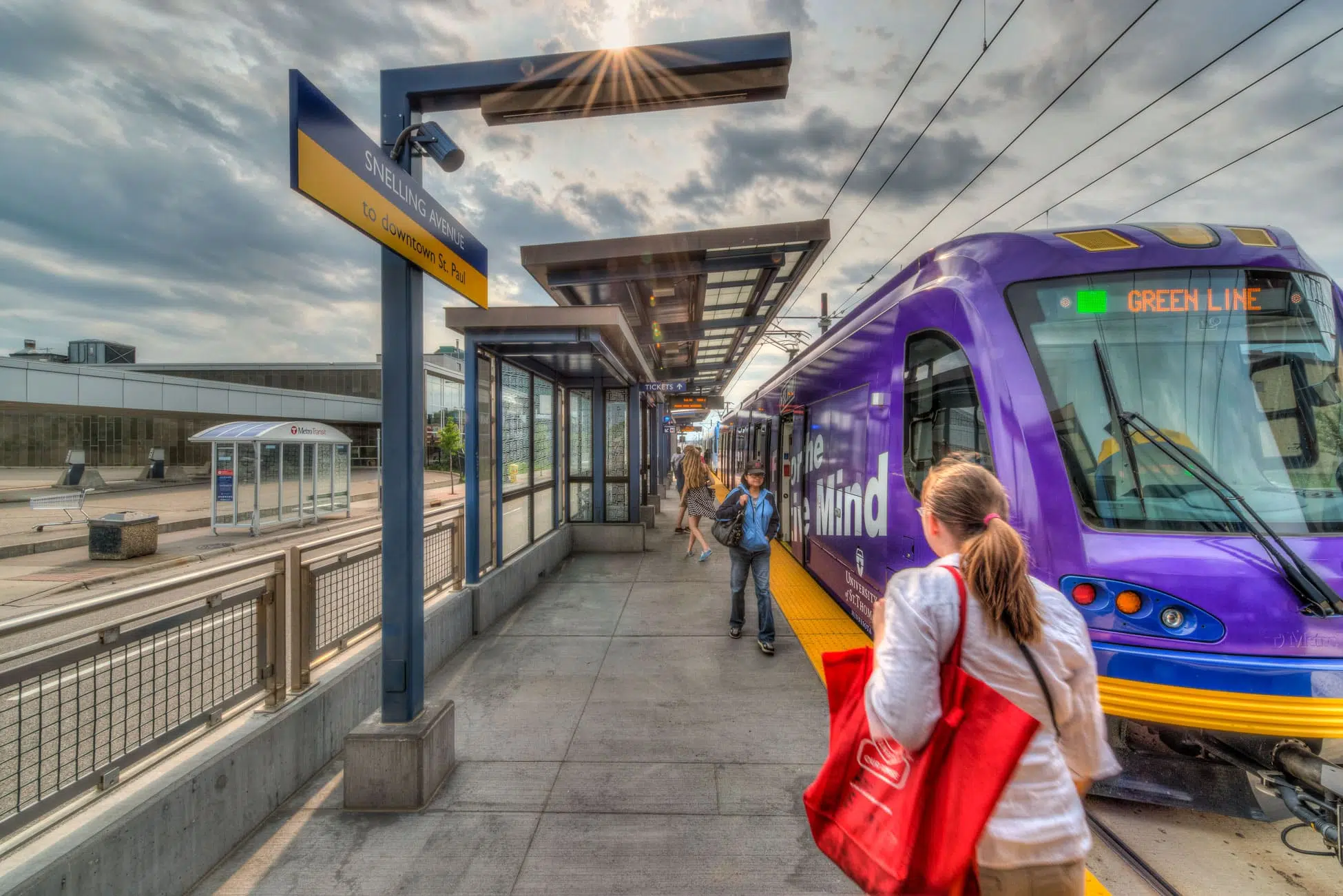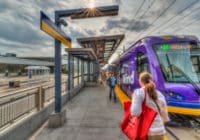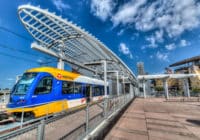Metro Transit Central Corridor Light Rail
Kimley-Horn worked as a subconsultant to develop the design for an 11-mile light rail transit (LRT) line that runs from Minneapolis to St. Paul, leading all civil engineering, traffic control design, and streetscape design efforts for this project. As part of the design process, Kimley-Horn led traffic studies in the University of Minnesota area including traffic forecasting, operations analysis, simulation, and development of concept improvements. In this role, the team worked with stakeholders, gathered input, presented analysis results and alternatives, and worked with the various agencies to address controversial and complicated issues regarding traffic volumes, safety, and LRT operations.
As the civil engineering lead on the project, Kimley-Horn developed more than a dozen options for routing various combinations of light rail, buses, cars, taxis, and commuter rail into the historic Union Depot in downtown St. Paul. This effort included options for roads and rail on all four sides of the historic Depot property and encompassed the surrounding neighborhoods and roadway network. The range of options was developed in concert with Ramsey County’s Union Depot environmental assessment/Section 106 process and involved coordination with FHWA, SHPO, the City of St. Paul, and Ramsey County. The project also included complete utility review and relocation strategies to address each option. In addition, Kimley-Horn studied traffic in the areas around the Depot and developed roadway geometrics and traffic signal plans for the full range of options considered.
Kimley-Horn also served as the environmental liaison to the environmental services team. In this role, the team was involved in identifying engineering issues that affect the environmental analysis, developing feasible and cost-effective solutions, and establishing a decision-making process that fosters commitment among project stakeholders.
Kimley-Horn also provided construction phase services for the project through its completion in June 2014.





